- Home
- D. H. Lawrence
Collected Short Stories Page 8
Collected Short Stories Read online
Page 8
They asked him questions of the South. They were starved for news, they said, in that God-forsaken hole.
"It is such a treat to hear a bit of news from outside," said the mother.
News! He smiled, and talked, plucking for them the leaves from off his tree: leaves of easy speech. He smiled, rather bitterly, as he slowly reeled off his news, almost mechanically. Yet he knew--and that was the irony of it--that they did not want his "records"; they wanted the timorous buds of his hopes, and the unknown fruits of his experience, full of the taste of tears and what sunshine of gladness had gone to their ripening. But they asked for his "news", and, because of some subtle perversity, he gave them what they begged, not what they wanted, not what he desired most sincerely to give them.
Gradually he exhausted his store of talk, that he had thought was limitless. Muriel moved about all the time, laying the table and listening, only looking now and again across the barren garden of his talk into his windows. But he hardened his heart and turned his head from her. The boys had stripped to their waists, and had knelt on the hearth-rug and washed themselves in a large tin bowl, the mother sponging and drying their backs. Now they stood wiping themselves, the firelight bright and rosy on their fine torsos, their heavy arms swelling and sinking with life. They seemed to cherish the firelight on their bodies. Benjamin, the younger, leaned his breast to the warmth, and threw back his head, showing his teeth in a voluptuous little smile. Mersham watched them, as he had watched the peewits and the sunset.
Then they sat down to their dinners, and the room was dim with the steam of food. Presently the father and the eldest brother were in from the cow-sheds, and all assembled at table. The conversation went haltingly; a little badinage on Mersham's part, a few questions on politics from the father. Then there grew an acute, fine feeling of discord. Mersham, particularly sensitive, reacted. He became extremely attentive to the others at table, and to his own manner of eating. He used English that was exquisitely accurate, pronounced with the Southern accent, very different from the heavily-sounded speech of the home folk. His nicety contrasted the more with their rough, country habit. They became shy and awkward, fumbling for something to say. The boys ate their dinners hastily, shovelling up the mass as a man shovels gravel. The eldest son clambered roughly with a great hand at the plate of bread-and-butter. Mersham tried to shut his eyes. He kept up all the time a brilliant tea-talk that they failed to appreciate in that atmosphere. It was evident to him; without forming the idea, he felt how irrevocably he was removing them from him, though he had loved them. The irony of the situation appealed to him, and added brightness and subtlety to his wit. Muriel, who had studied him so thoroughly, confusedly understood. She hung her head over her plate, and ate little. Now and again she would look up at him, toying all the time with her knife--though it was a family for ugly hands--and would address him some barren question. He always answered the question, but he invariably disregarded her look of earnestness, lapped in his unbreakable armour of light irony. He acknowledged, however, her power in the flicker of irritation that accompanied his reply. She quickly hid her face again.
They did not linger at tea, as in the old days. The men rose, with an "Ah well!" and went about their farm-work. One of the lads lay sprawling for sleep on the sofa; the other lighted a cigarette and sat with his arms on his knees, blinking into the fire. Neither of them ever wore a coat in the house, and their shirt-sleeves and their thick bare necks irritated the stranger still further by accentuating his strangeness. The men came tramping in and out to the boiler. The kitchen was full of bustle, of the carrying of steaming water, and of draughts. It seemed like a place out of doors. Mersham shrank up in his corner, and pretended to read the Daily News. He was ignored, like an owl sitting in the stalls of cattle.
"Go in the parlour, Cyril. Why don't you? It's comfortable there."
Muriel turned to him with this reproach, this remonstrance, almost chiding him. She was keenly aware of his discomfort, and of his painful discord with his surroundings. He rose without a word and obeyed her.
III
The parlour was a long, low room with red colourings. A bunch of mistletoe hung from the beam, and thickly-berried holly was over the pictures--over the little gilt-blazed water-colours that he hated so much because he had done them in his 'teens, and nothing is so hateful as the self one has left. He dropped in the tapestried chair called the Countess, and thought of the changes which this room had seen in him. There, by that hearth, they had threshed the harvest of their youth's experience, gradually burning the chaff of sentimentality and false romance that covered the real grain of life. How infinitely far away, now, seemed Jane Eyre and George Eliot. These had marked the beginning. He smiled as he traced the graph onwards, plotting the points with Carlyle and Ruskin, Schopenhauer and Darwin and Huxley, Omar Khayyam, the Russians, Ibsen and Balzac; then Guy de Maupassant and Madame Bovary. They had parted in the midst of Madame Bovary. Since then had come only Nietzsche and William James. They had not done so badly, he thought, during those years which now he was apt to despise a little, because of their dreadful strenuousness, and because of their later deadly, unrelieved seriousness. He wanted her to come in and talk about the old times. He crossed to the other side of the fire and lay in the big horse-hair chair, which pricked the back of his head. He looked about, and stuffed behind him the limp green cushions that were always sweating down.
It was a week after Christmas. He guessed they had kept up the holly and mistletoe for him. The two photographs of himself still occupied the post of honour on the mantelpiece; but between them was a stranger. He wondered who the fellow could be; good-looking he seemed to be; but a bit of a clown beside the radiant, subtle photos of himself. He smiled broadly at his own arrogance. Then he remembered that Muriel and her people were leaving the farm come Lady-day. Immediately, in valediction, he began to call up the old days, when they had romped and played so boisterously, dances, and wild charades, and all mad games. He was just telling himself that those were the days, the days of unconscious, ecstatic fun, and he was smiling at himself over his information, when she entered.
She came in, hesitating. Seeing him sprawling in his old abandonment, she closed the door softly. For a moment or two she sat, her elbows on her knees, her chin in her hands, sucking her little finger, and withdrawing it from her lips with a little pop, looking all the while in the fire. She was waiting for him, knowing all the time he would not begin. She was trying to feel him, as it were. She wanted to assure herself of him after so many months. She dared not look at him directly. Like all brooding, constitutionally earnest souls, she gave herself away unwisely, and was defenceless when she found herself pushed back, rejected so often with contempt.
"Why didn't you tell me you were coming?" she asked at last.
"I wanted to have exactly one of the old tea-times, and evenings."
"Ay!" she answered with hopeless bitterness. She was a dreadful pessimist. People had handled her so brutally, and had cheaply thrown away her most sacred intimacies.
He laughed, and looked at her kindly.
"Ah, well, if I'd thought about it I should have known this was what to expect. It's my own fault."
"Nay," she answered, still bitterly; "it's not your fault. It's ours. You bring us to a certain point, and when you go away, we lose it all again, and receive you like creatures who have never known you."
"Never mind," he said easily. "If it is so, it is! How are you?"
She turned and looked full at him. She was very handsome; heavily moulded, coloured richly. He looked back smiling into her big, brown, serious eyes.
"Oh, I'm very well," she answered, with puzzled irony. "How are you?"
"Me? You tell me. What do you think of me?"
"What do I think?" She laughed a little nervous laugh and shook her head. "I don't know. Why--you look well--and very much of a gentleman."
"Ah--and you are sorry?"
"No--No, I am not! No! Only you're different, you
see."
"Ah, the pity! I shall never be as nice as I was at twenty-one, shall I?" He glanced at his photo on the mantelpiece, and smiled, gently chaffing her.
"Well--you're different--it isn't that you're not so nice, but different. I always think you're like that, really."
She too glanced at the photo, which had been called the portrait of an intellectual prig, but which was really that of a sensitive, alert, exquisite boy. The subject of the portrait lay smiling at her. Then it turned voluptuously, like a cat spread out in the chair.
"And this is the last of it all--!"
She looked up at him, startled and pitiful.
"Of this phase, I mean," he continued, indicating with his eyes the room, the surroundings. "Of Crossleigh Bank, I mean, and this part of our lives."
"Ay!" she said, bowing her head, and putting into the exclamation all her depth of sadness and regret. He laughed.
"Aren't you glad?" he asked.
She looked up, startled, a little shocked.
"Good-bye's a fine word," he explained. "It means you're going to have a change, and a change is what you, of all people, want."
Her expression altered as she listened.
"It's true," she said. "I do."
"So you ought to say to yourself, 'What a treat! I'm going to say good-bye directly to the most painful phase of my life.' You make up your mind it shall be the most painful, by refusing to be hurt so much in the future. There you are! 'Men at most times are masters of their fates,' etcetera."
She pondered his method of reasoning, and turned to him with a little laughter that was full of pleading and yearning.
"Well," he said, lying, amiably smiling, "isn't that so?--and aren't you glad?"
"Yes!" she nodded. "I am--very glad."
He twinkled playfully at her, and asked, in a soft voice:
"Then what do you want?"
"Yes," she replied, a little breathlessly. "What do I?" She looked at him with a rash challenge that pricked him.
"Nay," he said, evading her, "do you even ask me that?"
She veiled her eyes, and said, meekly in excuse:
"It's a long time since I asked you anything, isn't it?"
"Ay! I never thought of it. Whom have you asked in the interim?"
"Whom have I asked?"--she arched her brows and laughed a monosyllable of scorn.
"No one, of course!" he said, smiling. "The world asks questions of you, you ask questions of me, and I go to some oracle in the dark, don't I?"
She laughed with him.
"No!" he said, suddenly serious. "Supposing you must answer me a big question--something I can never find out by myself?"
He lay out indolently in the chair and began smiling again. She turned to look with intensity at him, her hair's fine foliage all loose round her face, her dark eyes haunted with doubt, her finger at her lips. A slight perplexity flickered over his eyes.
"At any rate," he said, "you have something to give me."
She continued to look at him with dark, absorbing eyes. He probed her with his regard. Then he seemed to withdraw, and his pupils dilated with thought.
"You see," he said, "life's no good but to live--and you can't live your life by yourself. You must have a flint and a steel, both, to make the spark fly. Supposing you be my flint, my white flint, to spurt out red fire for me?"
"But how do you mean?" she asked breathlessly.
"You see," he continued, thinking aloud as usual: "thought--that's not life. It's like washing and combing and carding and weaving the fleece that the year of life has produced. Now I think--we've carded and woven to the end of our bundle--nearly. We've got to begin again--you and me--living together, see? Not speculating and poetising together--see?"
She did not cease to gaze absorbedly at him.
"Yes?" she whispered, urging him on.
"You see--I'll come back to you--to you--" He waited for her.
"But," she said huskily, "I don't understand."
He looked at her with aggressive frankness, putting aside all her confusions.
"Fibber!" he said gently.
"But--" she turned in her chair from him--"but not clearly."
He frowned slightly:
"Nay, you should be able by now to use the algebra of speech. Must I count up on your fingers for you what I mean, unit by unit, in bald arithmetic?"
"No--no!" she cried, justifying herself; "but how can I understand--the change in you? You used to say--you couldn't.--Quite opposite."
He lifted his head as if taking in her meaning.
"Ah, yes, I have changed. I forget. I suppose I must have changed in myself. I'm older--I'm twenty-six. I used to shrink from the thought of having to kiss you, didn't I?" He smiled very brightly, and added, in a soft voice: "Well--I don't, now."
She flushed darkly and hid her face from him.
"Not," he continued, with slow, brutal candour--"not that I know any more than I did then--what love is--as you know it--but--I think you're beautiful--and we know each other so well--as we know nobody else, don't we? And so we . . ."
His voice died away, and they sat in a tense silence, listening to the noise outside, for the dog was barking loudly. They heard a voice speaking and quieting him. Cyril Mersham listened. He heard the clatter of the barn door latch, and a slurring ring of a bicycle-bell brushing the wall.
"Who is it?" he asked, unsuspecting.
She looked at him, and confessed with her eyes, guiltily, beseeching. He understood immediately.
"Good Lord!--Him?" He looked at the photo on the mantelpiece. She nodded with her usual despair, her finger between her lips again. Mersham took some moments to adjust himself to the new situation.
"Well!--so he's in my place! Why didn't you tell me?"
"How could I?--he's not. Besides--you never would have a place." She hid her face.
"No," he drawled, thinking deeply. "I wouldn't. It's my fault altogether." Then he smiled, and said whimsically: "But I thought you kept an old pair of my gloves in the chair beside you."
"So I did, so I did!" she justified herself again with extreme bitterness, "till you asked me for them. You told me to--to take another man--and I did as you told me--as usual."
"Did I tell you?--did I tell you? I suppose I must. I suppose I am a fool. And do you like him?"
She laughed aloud, with scorn and bitterness.
"He's very good--and he's very fond of me."
"Naturally!" said Mersham, smiling and becoming ironical. "And how firmly is he fixed?"
IV
She was mortified, and would not answer him. The question for him now was how much did this intruder count. He looked, and saw she wore no ring--but perhaps she had taken it off for his coming. He began diligently to calculate what attitude he might take. He had looked for many women to wake his love, but he had been always disappointed. So he had kept himself virtuous, and waited. Now he would wait no longer. No woman and he could ever understand each other so well as he and Muriel whom he had fiercely educated into womanhood along with his own struggling towards a manhood of independent outlook. They had breathed the same air of thought, they had been beaten with the same storms of doubt and disillusionment, they had expanded together in days of pure poetry. They had grown so; spiritually, or rather psychically, as he preferred to say, they were married; and now he found himself thinking of the way she moved about the house.
The outer door had opened and a man had entered the kitchen, greeting the family cordially, and without any formality. He had the throaty, penetrating voice of a tenor singer, and it came distinctly over the vibrating rumble of the men's talking. He spoke good, easy English. The boys asked him about the "iron-men" and the electric haulage, and he answered them with rough technicalities, so Mersham concluded he was a working electrician in the mine. They continued to talk casually for some time, though there was a false note of secondary interest in it all. Then Benjamin came forward and broke the check, saying, with a dash of braggart taunting:
/> "Muriel's in th' parlour, Tom, if you want her."
"Oh, is she? I saw a light in; I thought she might be." He affected indifference, as if he were kept thus at every visit. Then he added, with a touch of impatience, and of the proprietor's interest: "What is she doing?"
"She's talking. Cyril Mersham's come from London."
"What!--is he here?"
Mersham sat listening, smiling. Muriel saw his eyelids lift. She had run up her flag of challenge taut, but continually she slackened towards him with tenderness. Now her flag flew out bravely. She rose, and went to the door.
"Hello!" she said, greeting the stranger with a little song of welcome in one word, such as girls use when they become aware of the presence of their sweetheart.
"You've got a visitor, I hear," he answered.
"Yes. Come along, come in!"
She spoke softly, with much gentle caressing.
He was a handsome man, well set-up, rather shorter than Mersham. The latter rose indolently, and held out his hand, smiling curiously into the beautiful, generous blue eyes of the other.
"Cyril--Mr. Vickers."
Tom Vickers crushed Mersham's hand, and answered his steady, smiling regard with a warm expansion of feeling, then bent his head, slightly confused.
"Sit here, will you?" said Mersham, languidly indicating the armchair.
"No, no, thanks, I won't. I shall do here, thanks." Tom Vickers took a chair and placed it in front of the fire. He was confusedly charmed with Mersham's natural frankness and courtesy.
"If I'm not intruding," he added, as he sat down.
"No, of course not!" said Muriel, in her wonderfully soft, fond tones--the indulgent tone of a woman who will sacrifice anything to love.
"Couldn't!" added Mersham lazily. "We're always a public meeting, Muriel and I. Aren't we, Miel? We're discussing affinities, that ancient topic. You'll do for an audience. We agree so beastly well, we two. We always did. It's her fault. Does she treat you so badly?"

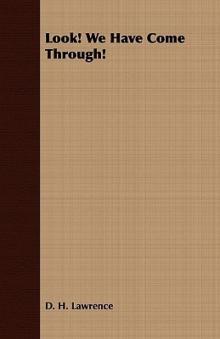 Look! We Have Come Through!
Look! We Have Come Through!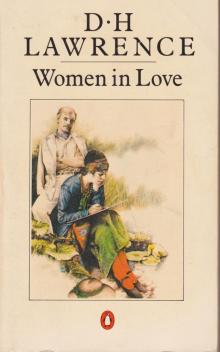 Women in Love
Women in Love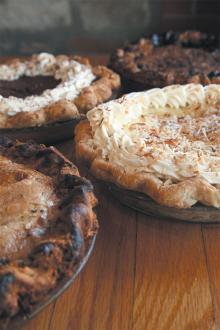 The Ladybird
The Ladybird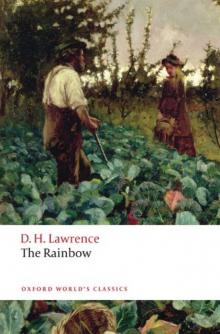 The Rainbow
The Rainbow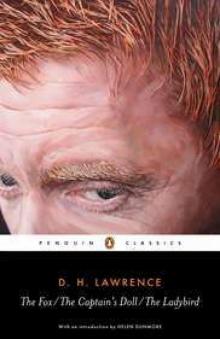 The Captain's Dol
The Captain's Dol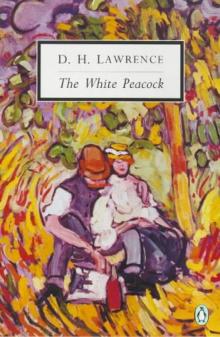 The White Peacock
The White Peacock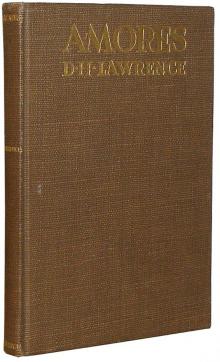 Amores
Amores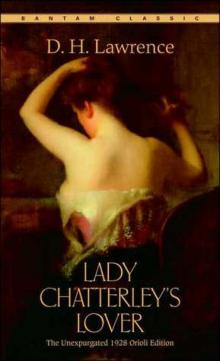 Lady Chatterley's Lover
Lady Chatterley's Lover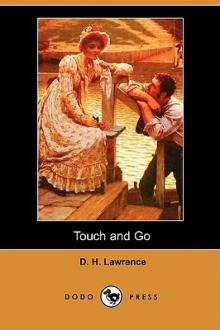 Touch and Go
Touch and Go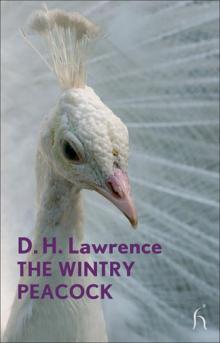 The Wintry Peacock
The Wintry Peacock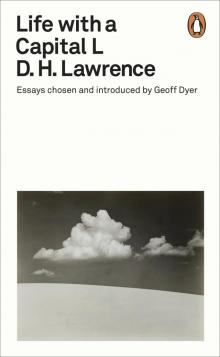 Life with a Capital L
Life with a Capital L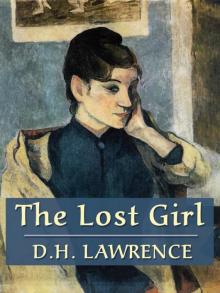 The Lost Girl
The Lost Girl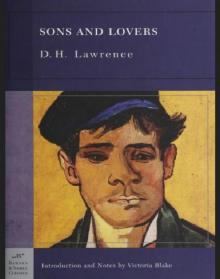 Sons and Lovers
Sons and Lovers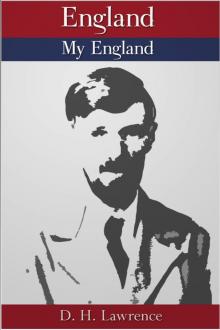 England, My England
England, My England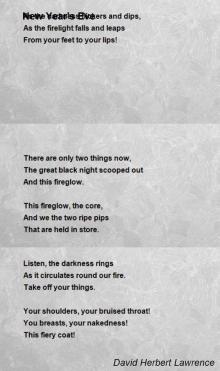 New Poems
New Poems Twilight in Italy
Twilight in Italy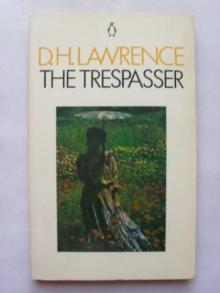 The Trespasser
The Trespasser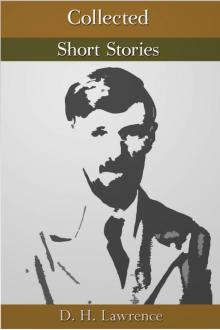 The Collected Short Stories
The Collected Short Stories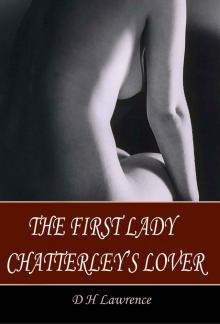 The First Lady Chatterley's Lover
The First Lady Chatterley's Lover Kangaroo
Kangaroo Bay
Bay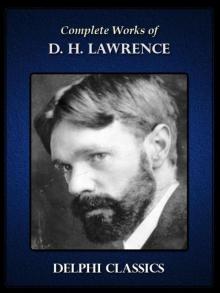 Complete Works of D.H. Lawrence
Complete Works of D.H. Lawrence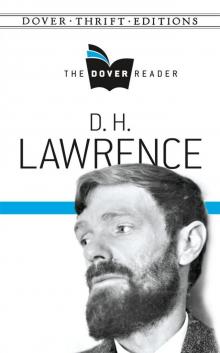 D H Lawrence- The Dover Reader
D H Lawrence- The Dover Reader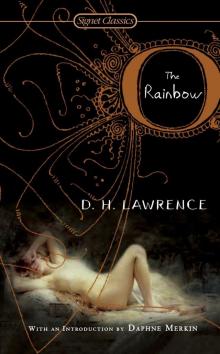 The Rainbow (100th Anniversary ed.)
The Rainbow (100th Anniversary ed.)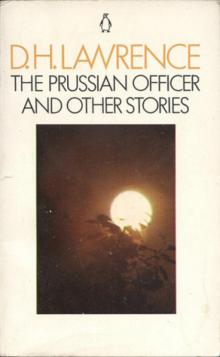 The Prussian Officer
The Prussian Officer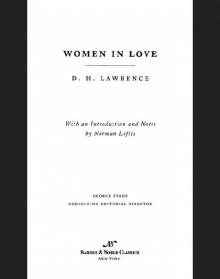 Women in Love (Barnes & Noble Classics Series)
Women in Love (Barnes & Noble Classics Series)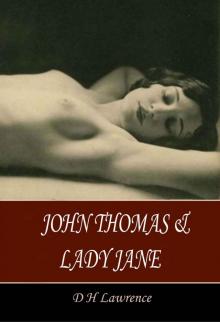 John Thomas and Lady Jane
John Thomas and Lady Jane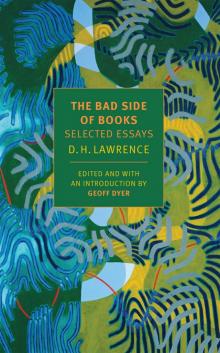 The Bad Side of Books
The Bad Side of Books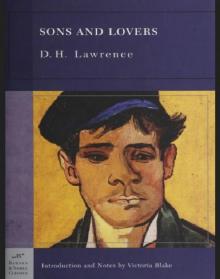 Sons and Lovers (Barnes & Noble Classics Series)
Sons and Lovers (Barnes & Noble Classics Series) Selected Stories
Selected Stories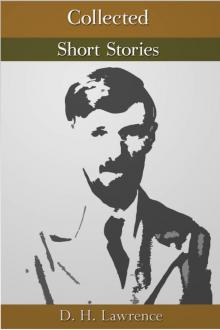 Collected Short Stories
Collected Short Stories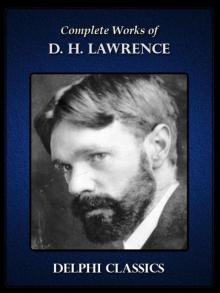 Complete Works of D.H. Lawrence (Illustrated)
Complete Works of D.H. Lawrence (Illustrated)